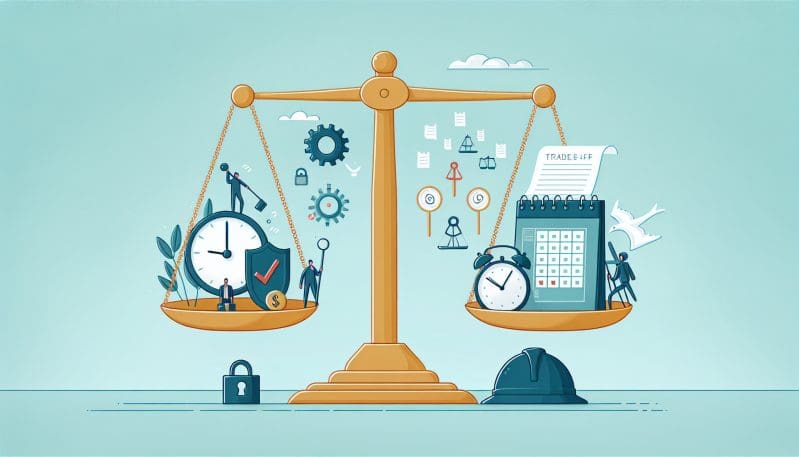The Gig Economy: Navigating the Trade-offs Between Flexibility and Worker Security
- Home
- The Gig Economy: Navigating the Trade-offs Between Flexibility and Worker Security
- Editors Desk
- February 21, 2024
- 0 Comments
In recent years, we’ve witnessed a seismic shift in the workforce with the rise of the gig economy. Companies like Uber and DoorDash have transformed the marketplace, offering unprecedented flexibility to those who seek alternative employment pathways. However, while the allure of setting one’s own hours and being one’s own boss is tempting, it often comes at the cost of stability and security.
For many gig workers, the trade-offs are becoming increasingly apparent. The ability to pick up work on a whim can be both liberating and anxiety-inducing. Workers often find themselves in a precarious position — one without the safety net that traditional employment often provides, such as health insurance, retirement plans, or even the guarantee of a steady income.
Our discussion today hones in on the critical issues and challenges faced by these modern laborers. The rise of the gig economy has prompted essential questions about the very nature of work and the responsibilities companies have toward those who power their services. Should companies like Uber and DoorDash view their workers as mere contractors, absolved from the responsibility of providing benefits? Or should they bear a greater duty to their workforce, acknowledging the essential role these workers play in their continued success?
As we explore the delicate balance between flexibility and security, we look towards innovative policy solutions. There’s an urgent need for a framework that ensures fair wages, health benefits, and job security for gig workers — safeguards that will not stifle the flexibility that makes the gig economy so appealing. Countries around the world are grappling with these questions, and some are beginning to implement groundbreaking legislation to protect gig workers without compromising the dynamism of the sector.
Creating a sustainable and equitable gig economy requires us to step back and examine the larger picture. It necessitates a collaborative effort between governments, businesses, and workers themselves to redefine what it means to work in the 21st century. It involves establishing a new social contract, one that ensures no worker is left behind — irrespective of how traditional or unconventional their work may be.
As a health and wellness advocate, I also emphasize the less talked about element — the mental and physical well-being of gig workers. The unpredictability and lack of benefits can take a toll on health, leading to stress and burnout. Part of our mission at No Worker Left Behind is to advocate for health coverage and access to wellness programs that are often out of reach for gig workers.
In conclusion, as the gig economy continues to expand, we must champion policies that protect those who power it. It’s time for stakeholders to come together to forge a future that honors the dignity of all forms of work and serves the collective well-being of workers. We invite you to join us in this thought-provoking discussion and hope to spark a movement towards a gig economy that is both sustainable and just.


Leave A Comment